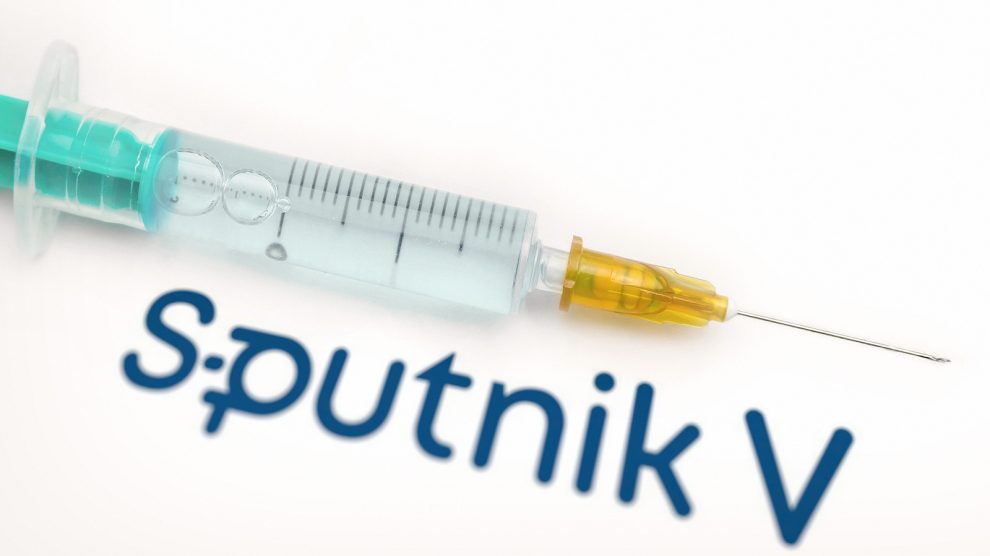Slovakia is set to start rolling-out the Russian Sputnik V Covid-19 vaccine, which will be viewed by Moscow as another victory for its vaccine diplomacy effort.
Slovakian Health Minister Vladimír Lengvarský said this week that his country will start using the Russian vaccine Sputnik V in June and that it was partially suspending use of the AstraZeneca jab.
Lengvarský said the main reason was that there are not enough AstraZeneca vaccine doses in stock.
- Slovakian PM’s secret purchase of Russian Covid-19 vaccine angers coalition partners
- Slovakia’s swap shop
- Jabbing the neighbours: Why vaccine tourists are flocking to Serbia
“AstraZeneca is still considered safe,” Lengvarský said on May 12. “We plan to start administering it again, once there are enough supplies in stock,” he said, adding that the roll-out of the Russian vaccine for people aged 18-60 would start in June. The country has received 200,000 doses so far but still needs to pay for them.
This follows a very awkward moment, when the need for more vaccine doses coincided with the realisation that accepting an imported Russian vaccine would come with strings attached. Prime Minister Igor Matovič resigned in March after failing to obtain the governing coalition’s agreement for his own decision to purchase two million doses of the Russian vaccine.
“The move is the latest twist in a row involving Slovakia’s ex-prime minister, its drugs regulator and Russia over the quality of batches of the vaccine delivered to Slovakia in March,” Politico has reported.
Last August Vladimir Putin announced that Russia had registered the world’s first Covid-19 vaccine — Sputnik V. At the time, Oxford University had only just started the phase III trial of its vaccine, and Johnson & Johnson’s single-shot vaccine was in phase I and II trials.
The European Medicines Agency (EMA) is currently still reviewing Sputnik V’s efficacy.
Vaccine diplomacy
Several European Union members are also turning to Beijing for additional supplies of vaccines, as they face public anger at the slowness of the EU vaccination roll-out, shortages, delivery bottlenecks, poor communication and concerns about vaccine safety.
About fifty countries have ordered the Sputnik V vaccine so far and the Kremlin has made a show of vaccine deliveries to Serbia and Montenegro, while Croatia has also begun talks with Russia. Czechia has also been looking to Russia for supplies of Sputnik V.
Hungary was the first European country to administer Sputnik V, in February 2021, after issuing emergency authorisation. It is also administering the Chinese jab. Hungarian Prime Minister Viktor Orbán famously posted a photo of himself being inoculated with a vaccine from Chinese manufacturer Sinopharm.
China had shipped 115 million doses worldwide, compared to the EU’s 58 million, by the end of March.
Meanwhile, Germany’s health minister has discussed overcoming supply shortages in the EU with Chinese and Russian vaccines, once they have been approved.
Bavarian Prime Minister Markus Söder has announced a preliminary purchase order for 2.5 million doses of Sputnik V, to be produced in Bavaria. German Chancellor Angela Merkel, and French President Emmanuel Macron have discussed joint production of Sputnik V with Putin.
“With vaccine diplomacy, Russia and China seek to leverage resentment against Western countries, which have pre-booked more than half of the global supply of vaccines this year and are prioritising immunising their own populations,” says Agathe Demarais, the EIU’s global forecasting director.
Demarais says that, “Western countries will engage in vaccine diplomacy only later this year. This will likely be too late to catch up with that of Russia and China, which are winning the public relations battle.”
Vaccinating its domestic population is secondary concern, it seems, for Moscow: the country has so far jabbed just 10 per cent of Russians.
Unlike many news and information platforms, Emerging Europe is free to read, and always will be. There is no paywall here. We are independent, not affiliated with nor representing any political party or business organisation. We want the very best for emerging Europe, nothing more, nothing less. Your support will help us continue to spread the word about this amazing region.
You can contribute here. Thank you.








Add Comment